Angel Hernandez Faces Criticism Amid Controversial Calls in Major League Baseball
Angel Hernandez, a veteran umpire in Major League Baseball (MLB), finds himself at the center of controversy yet again. Known for his polarizing calls and contentious interactions with players and managers, Hernandez’s recent decisions have reignited debates about umpiring standards in professional baseball.
Hernandez’s career spans over three decades, during which he has officiated numerous high-profile games and postseason matchups. Despite his experience, he has consistently drawn scrutiny for his on-field judgments, with critics pointing to instances of inconsistent strike zones and missed calls.
The latest incident occurred during a crucial matchup between two playoff contenders. With the game tied in the ninth inning and runners in scoring position, Hernandez made a call at home plate that left both teams and fans bewildered. Replays showed conflicting evidence, further fueling the controversy.
Criticism of Hernandez extends beyond individual calls. Some players and managers have raised concerns about his demeanor on the field, alleging confrontational behavior and a lack of receptiveness to feedback. Such tensions have strained relationships between Hernandez and members of the baseball community.
While umpiring is inherently subjective, many argue that Hernandez’s track record reflects deeper issues within MLB’s officiating system. Calls for increased accountability and transparency have grown louder in recent years, as fans and stakeholders demand a higher standard of officiating.
MLB, for its part, has implemented measures to address concerns about umpiring consistency. The introduction of replay review for certain calls was a significant step towards ensuring accuracy in critical moments. However, challenges remain in balancing the human element of officiating with the need for precision and fairness.
Hernandez’s case underscores the complexities inherent in umpiring at the highest level of baseball. The pressure to make split-second decisions in front of millions of viewers can be immense, and even the most experienced officials are not immune to mistakes. However, repeated controversies involving the same umpire raise questions about the effectiveness of current oversight mechanisms.
In response to mounting criticism, MLB has emphasized ongoing efforts to evaluate and improve umpiring standards. Training programs, performance assessments, and enhanced communication protocols aim to cultivate a more consistent and professional officiating corps. Yet, achieving universal satisfaction remains an elusive goal in a sport where debates over calls are as much a part of the game as the action on the field.
As Hernandez navigates the fallout from his latest controversial call, the discussion surrounding his tenure as an umpire serves as a microcosm of broader debates about the state of officiating in professional sports. While individual umpires may come under scrutiny, the focus ultimately shifts to larger questions about fairness, integrity, and the pursuit of excellence in the game of baseball.
In the end, Angel Hernandez’s legacy may be defined not only by his on-field decisions but also by the impact he has on the ongoing evolution of umpiring in Major League Baseball. Whether as a catalyst for change or a symbol of enduring challenges, his name will undoubtedly remain intertwined with the complex tapestry of America’s pastime.
Umpire Angel Hernandez Under Fire Again for Questionable Officiating Decisions
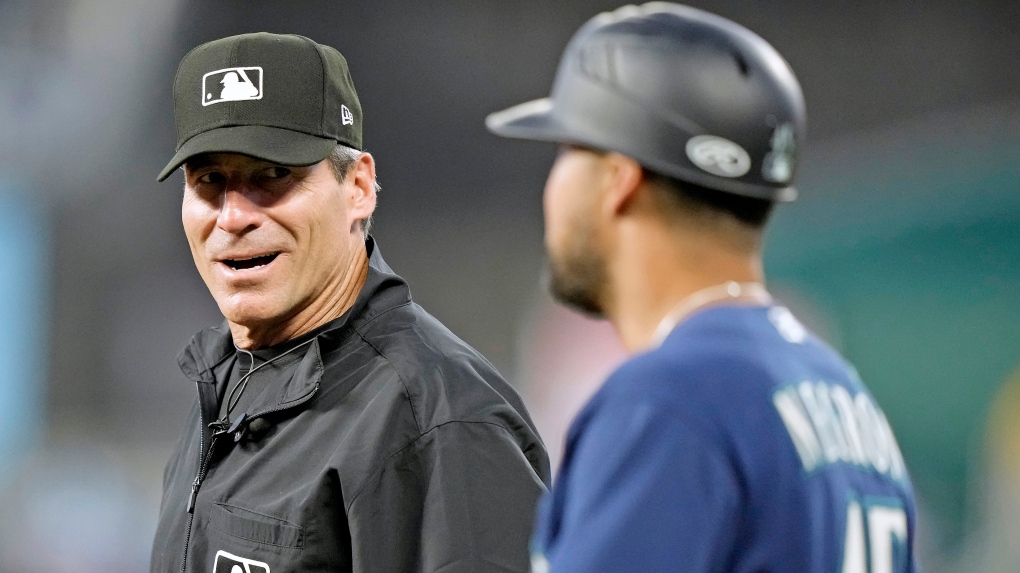
Angel Hernandez, a veteran umpire in Major League Baseball (MLB), finds himself once more embroiled in controversy over his officiating decisions. Known for his polarizing calls and contentious interactions with players and managers, Hernandez’s latest actions have reignited debates about the consistency and quality of umpiring in professional baseball.
Hernandez’s career, spanning over three decades, has been marked by both accolades and criticism. While he has officiated numerous high-profile games and postseason matchups, his on-field judgments have often come under scrutiny for their inconsistency and perceived bias.
The most recent incident occurred during a tightly contested game between two fierce rivals. In a pivotal moment late in the match, Hernandez made a call that left players, coaches, and fans scratching their heads. Replays seemed to contradict his ruling, adding fuel to the already fiery debate surrounding his officiating prowess.
Critics of Hernandez argue that his questionable decisions extend beyond individual calls, pointing to a pattern of behavior that includes confrontational interactions with players and a perceived unwillingness to admit mistakes. Such actions have strained relationships between Hernandez and members of the baseball community, further exacerbating tensions.
The controversy surrounding Hernandez highlights broader concerns about umpiring standards within MLB. Calls for increased accountability and transparency have grown louder in recent years, with fans and stakeholders alike calling for reforms to ensure fairness and consistency in officiating.
While MLB has taken steps to address these concerns, including the introduction of replay review for certain calls, challenges persist in balancing the human element of officiating with the need for precision and fairness. Hernandez’s case underscores the complexities inherent in umpiring at the highest level of baseball.
In response to mounting criticism, MLB has emphasized its commitment to evaluating and improving umpiring standards. Training programs, performance assessments, and enhanced communication protocols aim to cultivate a more consistent and professional officiating corps. However, achieving universal satisfaction remains a daunting task in a sport where debates over calls are as much a part of the game as the action on the field.
As Hernandez faces renewed scrutiny for his officiating decisions, the discussion surrounding his role as an umpire reflects broader debates about the state of officiating in professional sports. While individual umpires may come under fire, the focus ultimately shifts to larger questions about fairness, integrity, and the pursuit of excellence in the game of baseball.
The end, Angel Hernandez’s legacy may be shaped not only by his on-field decisions but also by the impact he has on the ongoing evolution of umpiring in Major League Baseball. Whether as a catalyst for change or a symbol of enduring challenges, his name will undoubtedly remain a focal point in the ongoing dialogue about the role of umpires in America’s favorite pastime.
MLB Umpire Angel Hernandez Sparks Debate Over Consistency and Accuracy
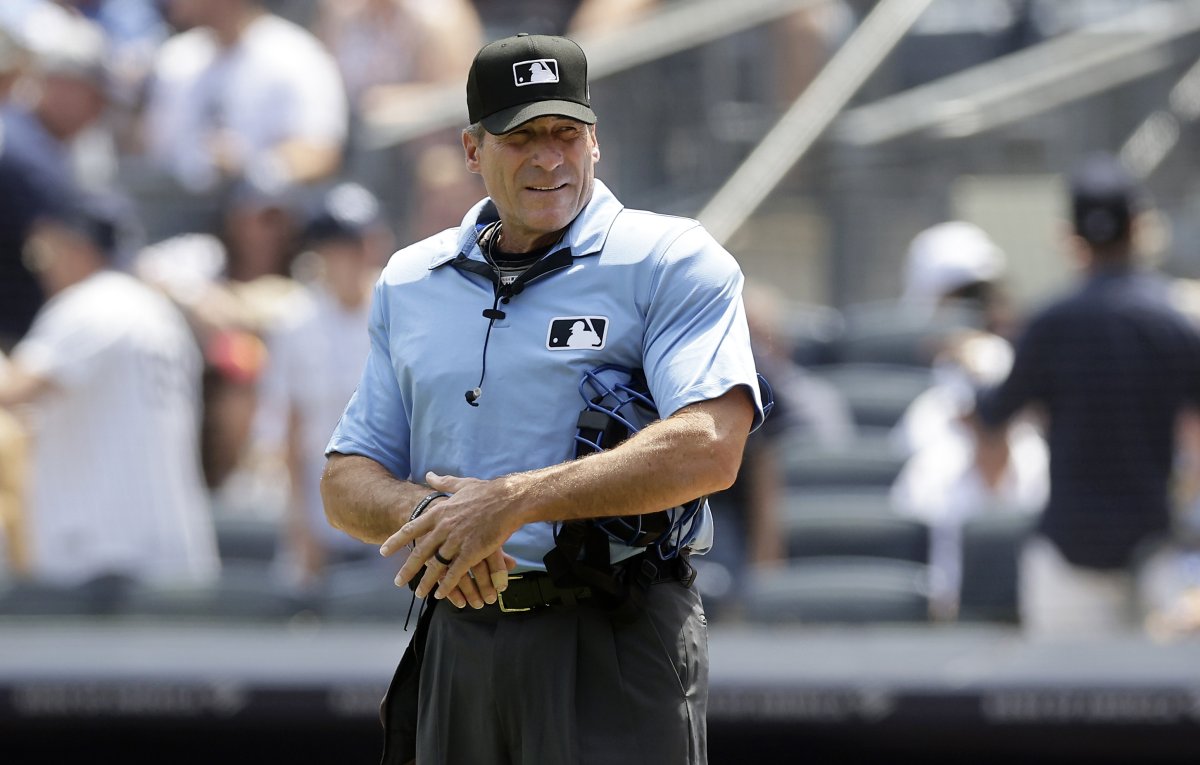
Angel Hernandez, a longstanding figure in Major League Baseball (MLB) umpiring, has once again found himself at the center of a contentious debate regarding the consistency and accuracy of officiating in professional baseball. Known for his polarizing calls and confrontational demeanor, Hernandez’s recent actions have reignited discussions about the standards upheld by MLB umpires.
Hernandez’s tenure as an umpire spans over three decades, during which he has officiated countless games, including high-stakes playoff matchups. However, despite his experience, Hernandez has frequently come under scrutiny for what critics perceive as inconsistent and questionable decisions on the field.
The latest incident involving Hernandez occurred during a critical moment in a closely contested game between two playoff contenders. His ruling on a controversial play drew sharp criticism from players, coaches, and fans alike. Replays seemed to suggest conflicting evidence, leading to further confusion and frustration among those watching.
Critics of Hernandez argue that his performance extends beyond individual calls, highlighting a perceived lack of receptiveness to feedback and a propensity for confrontational interactions with players and managers. Such behavior has strained relationships within the baseball community and fueled calls for increased accountability among umpires.
The controversy surrounding Hernandez underscores broader concerns about the consistency and accuracy of officiating in MLB. Calls for reforms to ensure fairness and transparency have grown louder in recent years, with fans and stakeholders alike emphasizing the importance of upholding the integrity of the game.
In response to mounting criticism, MLB has taken steps to address concerns about umpiring standards. The introduction of replay review for certain calls was a significant advancement aimed at minimizing errors in critical moments. Additionally, ongoing efforts to enhance training programs and performance evaluations seek to promote consistency and professionalism among umpires.
However, challenges remain in balancing the human element of officiating with the demands for precision and fairness. Hernandez’s case serves as a reminder of the complexities inherent in umpiring at the highest level of baseball and underscores the need for continued efforts to improve standards across the board.
As Hernandez faces renewed scrutiny over his officiating decisions, the conversation surrounding his role as an umpire reflects broader debates about the state of officiating in professional sports. While individual umpires may face criticism, the focus ultimately shifts to larger questions about accountability, transparency, and the pursuit of excellence in the game of baseball.
Angel Hernandez’s Officiating Style Raises Concerns Among Players and Fans Alike
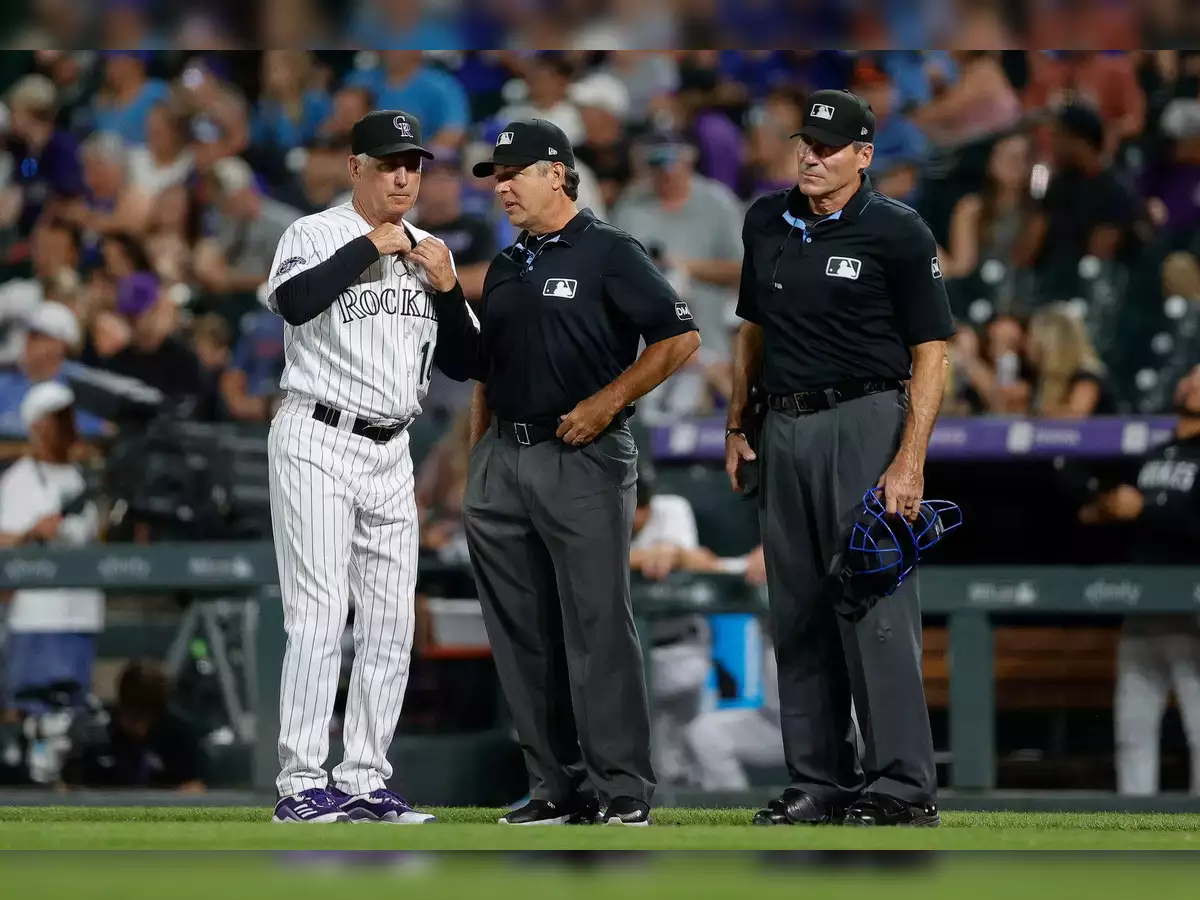
Angel Hernandez, a veteran umpire in Major League Baseball (MLB), has long been a figure of controversy due to his officiating style, which has raised concerns among players and fans alike. Known for his polarizing calls and contentious interactions on the field, Hernandez’s approach to umpiring has sparked debates about consistency, professionalism, and the overall quality of officiating in professional baseball.
Hernandez’s career as an MLB umpire spans over three decades, during which he has officiated numerous high-profile games and postseason matchups. Despite his experience, he has frequently come under scrutiny for what many perceive as inconsistent and questionable decisions during games.
One of the primary concerns raised by players and fans is the perceived inconsistency in Hernandez’s strike zone. Pitchers and batters alike often express frustration with what they perceive as an erratic or unpredictable strike zone, which can significantly impact the outcome of games. Such inconsistencies undermine the integrity of the game and can lead to heated confrontations between players and umpires.
Furthermore, Hernandez’s demeanor on the field has also drawn criticism. Many players and managers have accused him of being confrontational and unwilling to engage in constructive dialogue. These interactions not only disrupt the flow of the game but also strain relationships between Hernandez and members of the baseball community.
The controversy surrounding Hernandez reached a boiling point during a recent game, where a series of questionable calls led to widespread outcry from players, coaches, and fans. Replays of key moments seemed to contradict Hernandez’s rulings, further fueling frustration and anger among those watching.
Critics argue that Hernandez’s officiating style reflects larger issues within MLB’s umpiring system. Calls for increased transparency, accountability, and professionalism have grown louder in recent years, with stakeholders calling for reforms to ensure consistency and fairness in officiating.
In response to mounting criticism, MLB has implemented measures to address concerns about umpiring standards. The introduction of replay review for certain calls was a significant step towards minimizing errors in critical moments. Additionally, ongoing efforts to enhance training programs and performance evaluations aim to promote a more consistent and professional officiating corps.
However, challenges remain in balancing the human element of officiating with the need for precision and fairness. Hernandez’s case serves as a reminder of the complexities inherent in umpiring at the highest level of baseball and underscores the ongoing need for improvement.
As Hernandez continues to officiate games amidst scrutiny and controversy, the conversation surrounding his role as an umpire reflects broader debates about the state of officiating in professional sports. While individual umpires may face criticism, the focus ultimately shifts to larger questions about accountability, integrity, and the pursuit of excellence in the game of baseball.
In conclusion, Angel Hernandez’s officiating style has raised significant concerns among players and fans alike. While his case highlights ongoing challenges within MLB’s umpiring system, it also presents an opportunity for reflection and improvement. Whether as a catalyst for change or a symbol of enduring challenges, Hernandez’s legacy will undoubtedly continue to shape discussions about the role of umpires in America’s favorite pastime.
Calls for Accountability: Angel Hernandez’s Role in MLB Umpiring Standards
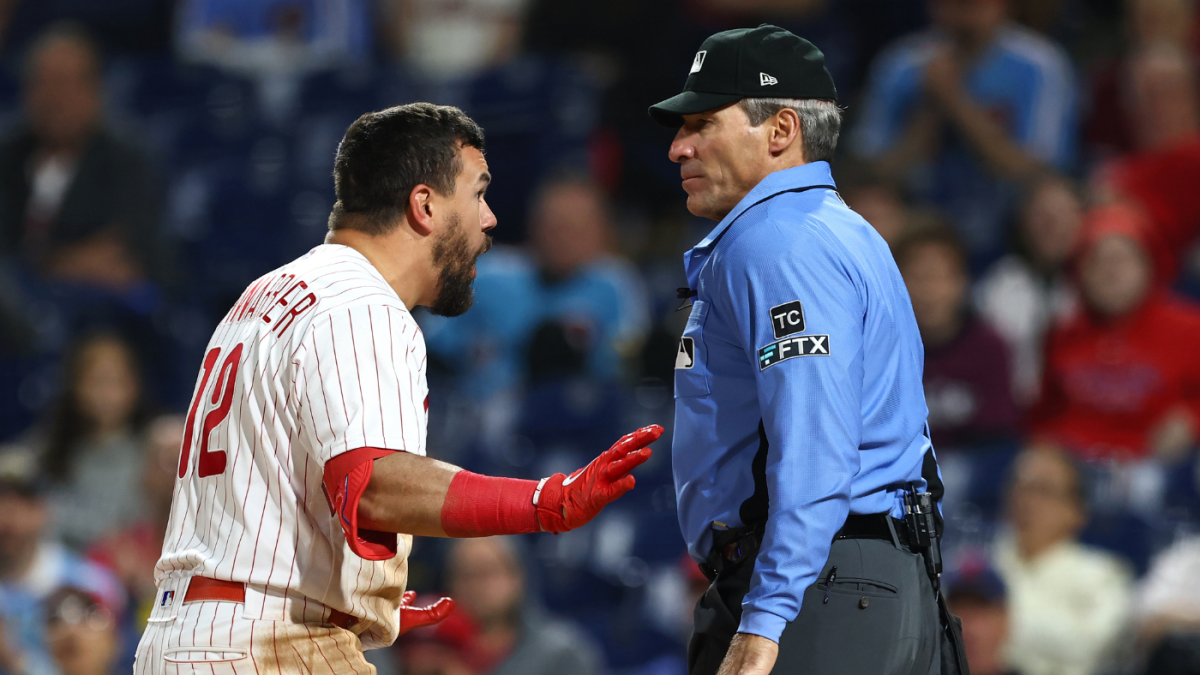
Angel Hernandez, a veteran umpire in Major League Baseball (MLB), has become a focal point in discussions about umpiring standards and accountability within the league. Hernandez’s officiating decisions and on-field demeanor have sparked controversy and raised questions about consistency, fairness, and professionalism in professional baseball.
Throughout his extensive career spanning over three decades, Hernandez has officiated numerous high-profile games and postseason matchups. Despite his experience, he has often found himself under scrutiny for what many perceive as inconsistent and controversial calls during games.
One of the primary issues raised by players, coaches, and fans is the perceived variability in Hernandez’s strike zone. Pitchers and batters alike have expressed frustration with what they see as an unpredictable and at times arbitrary strike zone, which can significantly impact the outcome of games. Such inconsistencies undermine the integrity of the game and contribute to tensions on the field.
In addition to concerns about his officiating decisions, Hernandez’s demeanor on the field has also drawn criticism. Many players and managers have accused him of being confrontational and unresponsive to feedback, which can escalate tensions during games and strain relationships within the baseball community.
The controversy surrounding Hernandez came to a head during a recent game, where a series of questionable calls led to widespread outcry from players, coaches, and fans. Replays of key moments seemed to contradict Hernandez’s rulings, further fueling frustration and calls for increased accountability.
Critics argue that Hernandez’s performance reflects broader issues within MLB’s umpiring system. Calls for greater transparency, consistency, and professionalism have grown louder in recent years, with stakeholders urging reforms to ensure fairness and integrity in officiating.
In response to mounting criticism, MLB has taken steps to address concerns about umpiring standards. The introduction of replay review for certain calls represents a significant effort to minimize errors in critical moments. Additionally, ongoing efforts to enhance training programs and performance evaluations aim to cultivate a more consistent and professional officiating corps.
However, challenges persist in balancing the human element of officiating with the need for precision and fairness. Hernandez’s case serves as a reminder of the complexities inherent in umpiring at the highest level of baseball and highlights the ongoing need for improvement.
As Hernandez continues to officiate games amidst scrutiny and controversy, the conversation surrounding his role reflects broader debates about accountability and standards in professional sports officiating. While individual umpires may face criticism, the focus ultimately shifts to larger questions about fairness, integrity, and the pursuit of excellence in the game of baseball.
In conclusion, Angel Hernandez’s role in MLB umpiring standards has sparked calls for greater accountability and transparency within the league. While his case highlights ongoing challenges, it also presents an opportunity for reflection and improvement. Whether as a catalyst for change or a symbol of enduring challenges, Hernandez’s legacy will continue to shape discussions about the role of umpires in America’s favorite pastime.
The Angel Hernandez Debate: Is It Time for Umpire Accountability Measures?
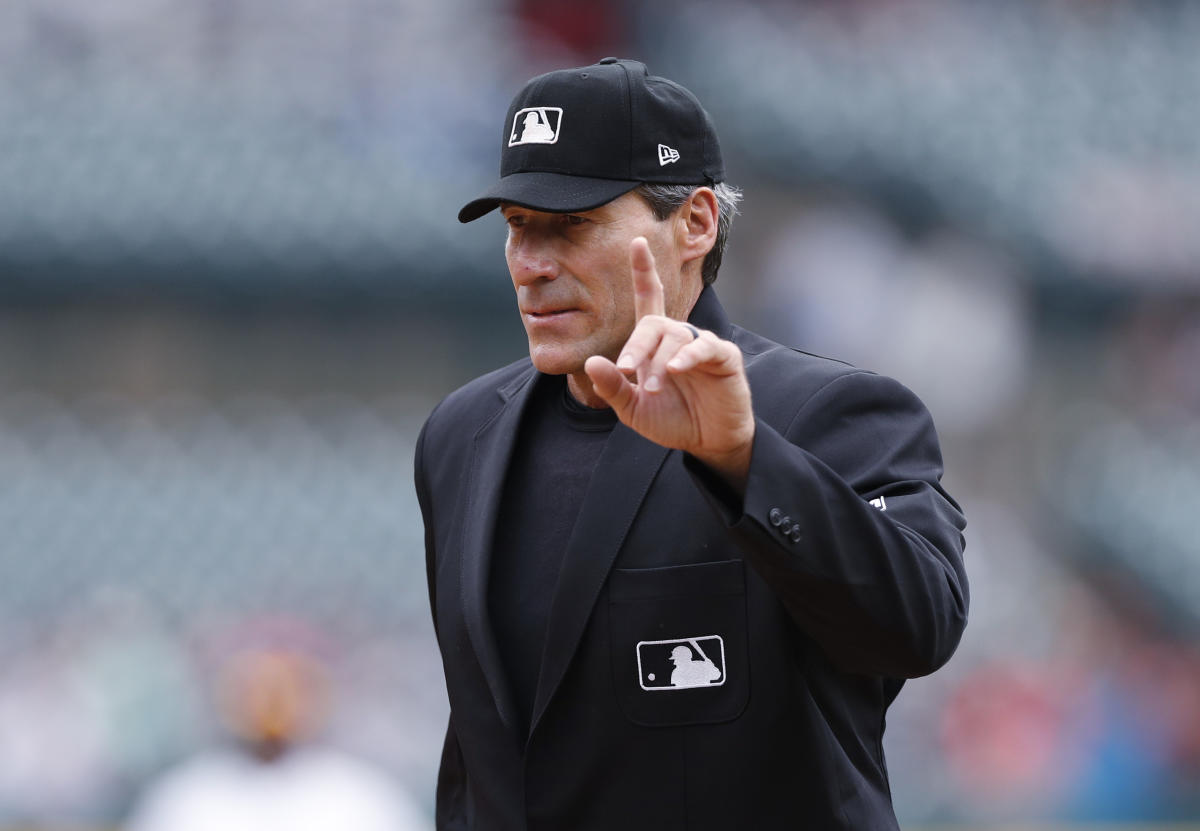
The name Angel Hernandez has become synonymous with controversy in Major League Baseball (MLB), sparking a heated debate over the need for increased umpire accountability measures within the league. Hernandez’s officiating decisions, characterized by inconsistency and contentious interactions with players and coaches, have reignited discussions about the standards upheld by MLB umpires.
With a career spanning over three decades, Hernandez has officiated numerous high-profile games and postseason matchups. Despite his experience, he has frequently come under fire for what many perceive as questionable calls on the field.
One of the central issues raised by players, managers, and fans is the perceived lack of consistency in Hernandez’s strike zone. Pitchers and batters alike have voiced frustration over what they see as an erratic and unpredictable strike zone, which can significantly impact the outcome of games and undermine the integrity of the sport.
In addition to concerns about his officiating decisions, Hernandez’s confrontational demeanor has also drawn criticism. Many players and managers have accused him of being unresponsive to feedback and creating unnecessary conflicts during games, leading to strained relationships within the baseball community.
The controversy surrounding Hernandez reached a boiling point during a recent game, where a series of disputed calls sparked outrage from players, coaches, and fans alike. Replays of key moments appeared to contradict Hernandez’s rulings, further fueling calls for increased accountability measures for MLB umpires.
Critics argue that Hernandez’s performance reflects broader issues within MLB’s umpiring system. Calls for greater transparency, consistency, and professionalism have grown louder in recent years, with stakeholders advocating for reforms to ensure fairness and integrity in officiating.
In response to mounting criticism, MLB has taken steps to address concerns about umpire accountability. The introduction of replay review for certain calls represents a significant effort to minimize errors in critical moments. Additionally, ongoing efforts to enhance training programs and performance evaluations aim to cultivate a more consistent and professional officiating corps.
However, many believe that more stringent measures are needed to hold umpires accountable for their actions on the field. Suggestions for reform include implementing stricter disciplinary measures for umpires who repeatedly make egregious errors, establishing clearer guidelines for evaluating umpire performance, and increasing transparency in the review process.
Proponents of increased accountability measures argue that such reforms are essential for maintaining the integrity of the game and restoring public trust in MLB umpiring. By holding umpires to higher standards of professionalism and consistency, the league can ensure a fair and enjoyable experience for players and fans alike.
MLB Controversy: Angel Hernandez’s Calls Highlight Need for Umpire Evaluation
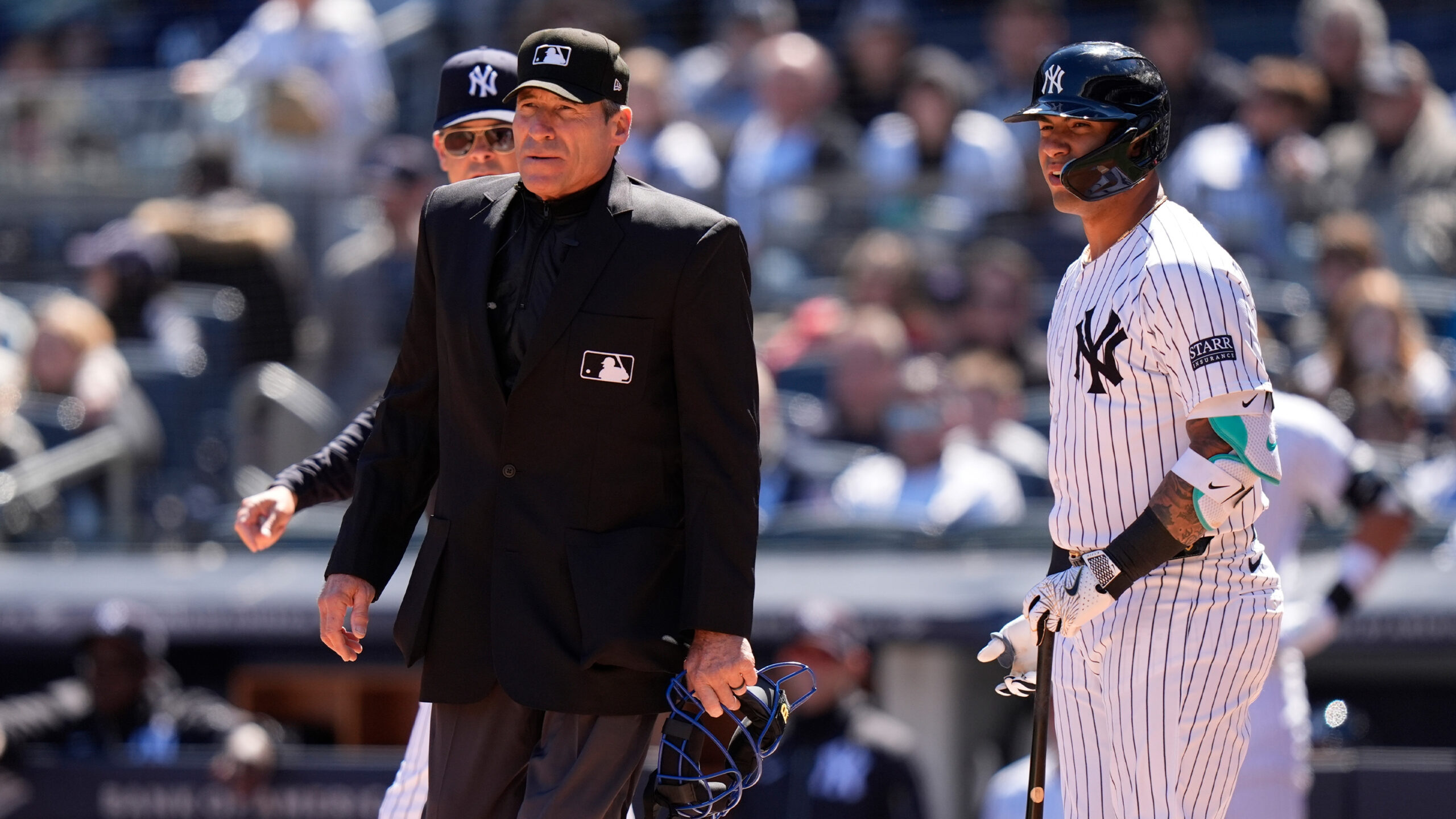
Angel Hernandez, a veteran umpire in Major League Baseball (MLB), has once again found himself embroiled in controversy, sparking renewed discussions about the need for comprehensive umpire evaluation systems within the league. Hernandez’s officiating decisions, characterized by inconsistency and contentious interactions with players and coaches, have underscored the importance of assessing and improving the performance of MLB umpires.
With a career spanning over three decades, Hernandez has officiated numerous high-stakes games and postseason matchups. Despite his experience, he has frequently faced criticism for what many perceive as questionable calls on the field.
Central to the criticism directed at Hernandez is the perceived lack of consistency in his strike zone. Pitchers and batters alike have expressed frustration over what they see as an unpredictable and at times arbitrary strike zone, which can significantly impact the outcome of games and erode confidence in the fairness of officiating.
Moreover, Hernandez’s confrontational demeanor has also been a point of contention. Players and managers have accused him of being unresponsive to feedback and unnecessarily escalating conflicts during games, leading to strained relationships within the baseball community.
The recent controversy surrounding Hernandez reached a climax during a critical game, where a series of disputed calls sparked outrage from players, coaches, and fans. Replays of key moments appeared to contradict Hernandez’s rulings, further fueling calls for increased accountability measures for MLB umpires.
Critics argue that Hernandez’s performance is symptomatic of broader issues within MLB’s umpiring system. Calls for greater transparency, consistency, and professionalism have grown louder in recent years, with stakeholders advocating for reforms to ensure fairness and integrity in officiating.
In response to mounting criticism, MLB has taken steps to address concerns about umpire evaluation. The introduction of replay review for certain calls represents a significant effort to minimize errors in critical moments. Additionally, ongoing efforts to enhance training programs and performance evaluations aim to cultivate a more consistent and professional officiating corps.
However, many believe that more robust evaluation systems are needed to effectively assess umpire performance and address shortcomings. Suggestions for reform include implementing standardized criteria for evaluating umpire decisions, conducting regular performance reviews with feedback from players and managers, and utilizing advanced technology to provide objective assessments of calls on the field.
Proponents of enhanced umpire evaluation argue that such measures are essential for maintaining the integrity of the game and restoring public trust in MLB officiating. By holding umpires accountable for their performance and providing avenues for improvement, the league can ensure a fair and enjoyable experience for players and fans alike.
In conclusion, the controversy surrounding Angel Hernandez’s calls highlights the pressing need for comprehensive umpire evaluation systems within Major League Baseball. While Hernandez’s case underscores ongoing challenges within the officiating system, it also presents an opportunity for meaningful reform. By prioritizing transparency, consistency, and professionalism in umpiring, MLB can uphold the integrity of America’s favorite pastime and ensure fair competition on the field.
Angel Hernandez’s Controversial Calls Add Fuel to MLB Umpiring Reform Discussions
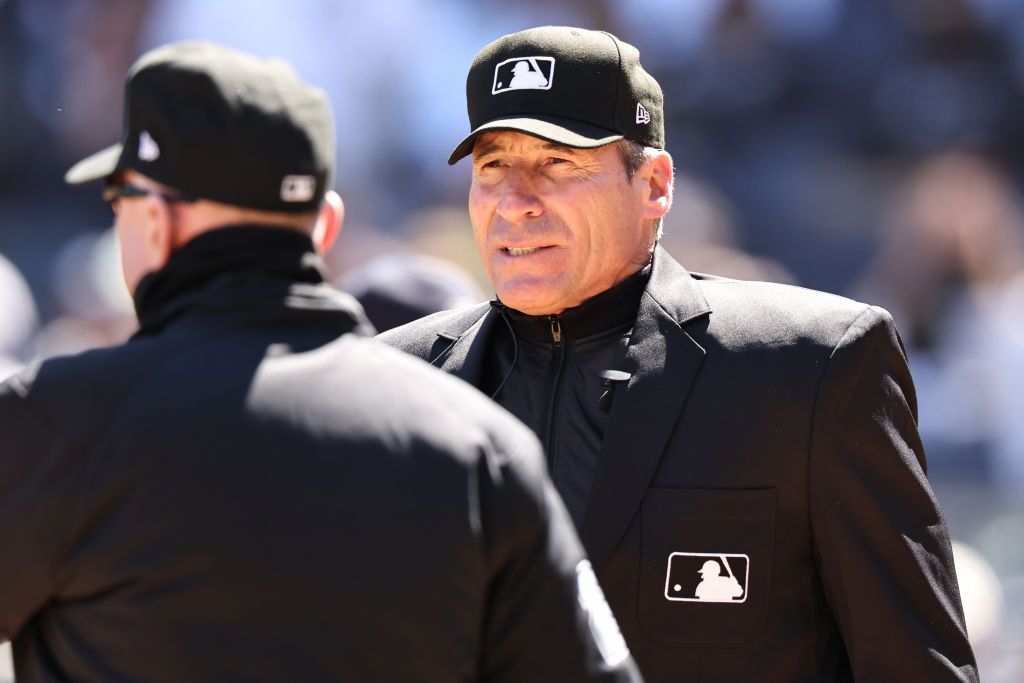
Angel Hernandez, a longtime umpire in Major League Baseball (MLB), has once again stirred controversy with his officiating decisions, reigniting discussions about the need for reform within MLB’s umpiring system. Hernandez’s calls, often marked by inconsistency and contentious interactions, have become emblematic of broader concerns about the quality and accountability of MLB umpires.
With a career spanning over three decades, Hernandez has officiated numerous high-profile games and postseason matchups. However, despite his experience, he has been a lightning rod for criticism due to what many perceive as questionable calls on the field.
Central to the criticism surrounding Hernandez are concerns about the consistency and accuracy of his strike zone. Pitchers, batters, coaches, and fans alike have voiced frustration over what they perceive as an erratic and unpredictable strike zone, which can have significant implications for game outcomes and player performance.
Moreover, Hernandez’s confrontational demeanor has further exacerbated tensions on the field. Players and managers have accused him of being unresponsive to feedback and unnecessarily escalating conflicts during games, leading to strained relationships within the baseball community.
The recent controversy surrounding Hernandez reached a boiling point during a pivotal game, where a series of disputed calls sparked outrage from players, coaches, and fans. Replays of key moments appeared to contradict Hernandez’s rulings, adding fuel to the fire and intensifying calls for reform within MLB’s umpiring ranks.
Critics argue that Hernandez’s performance is symptomatic of broader systemic issues within MLB’s umpiring system. Calls for greater transparency, consistency, and professionalism have become increasingly vocal in recent years, with stakeholders advocating for reforms to ensure fairness and integrity in officiating.
In response to mounting criticism, MLB has taken steps to address concerns about umpiring standards. The introduction of replay review for certain calls represents a significant effort to minimize errors in critical moments. Additionally, ongoing efforts to enhance training programs and performance evaluations aim to cultivate a more consistent and professional officiating corps.
However, many believe that more comprehensive reforms are necessary to address the root causes of umpiring controversies. Suggestions for reform include implementing standardized criteria for evaluating umpire decisions, conducting regular performance reviews with input from players and managers, and leveraging advanced technology to provide objective assessments of calls on the field.
Proponents of umpiring reform argue that such measures are essential for restoring public trust in MLB officiating and preserving the integrity of the game. By holding umpires accountable for their performance and providing avenues for improvement, the league can ensure a fair and enjoyable experience for players and fans alike.
In conclusion, Angel Hernandez’s controversial calls have reignited discussions about the need for reform within MLB’s umpiring system. While his case underscores longstanding challenges within the officiating ranks, it also presents an opportunity for meaningful change. By prioritizing transparency, consistency, and professionalism in umpiring, MLB can uphold the integrity of America’s favorite pastime and ensure fair competition on the field.
Criticism Mounts Against Angel Hernandez Amidst Allegations of Inconsistent Officiating
Angel Hernandez, a veteran umpire in Major League Baseball (MLB), finds himself under intensifying scrutiny as criticism mounts over allegations of inconsistent officiating. Hernandez’s controversial calls and contentious interactions with players and managers have sparked widespread debate about the quality and reliability of MLB umpiring.
Throughout his lengthy career spanning over three decades, Hernandez has officiated countless games, including high-stakes playoff matchups. However, despite his experience, he has faced persistent criticism for what many perceive as questionable decisions on the field.
One of the primary issues fueling criticism against Hernandez is the perceived lack of consistency in his strike zone. Pitchers and batters alike have voiced frustration over what they view as an erratic and unpredictable strike zone, which can significantly impact the outcome of games and disrupt the flow of play.
Moreover, Hernandez’s confrontational demeanor has further exacerbated tensions on the field. Players and managers have accused him of being unresponsive to feedback and unnecessarily escalating conflicts during games, leading to strained relationships within the baseball community.
The recent escalation of criticism against Hernandez reached a tipping point during a critical game, where a series of disputed calls ignited outrage from players, coaches, and fans. Replays of key moments appeared to contradict Hernandez’s rulings, intensifying calls for accountability and reform within MLB’s umpiring ranks.
Critics argue that Hernandez’s performance highlights broader systemic issues within MLB’s officiating system. Calls for greater transparency, consistency, and professionalism have grown louder in recent years, with stakeholders advocating for reforms to uphold fairness and integrity in the game.
MLB has taken steps to address concerns about umpiring standards. The introduction of replay review for certain calls represents a significant effort to minimize errors in critical moments. Additionally, ongoing efforts to enhance training programs and performance evaluations aim to foster a more consistent and professional officiating corps.
However, many believe that more comprehensive reforms are necessary to address the underlying issues contributing to umpiring controversies. Suggestions for reform include implementing standardized criteria for evaluating umpire decisions, conducting regular performance reviews with input from players and managers, and leveraging advanced technology to provide objective assessments of calls on the field.
Proponents of umpiring reform argue that such measures are crucial for restoring public trust in MLB officiating and preserving the integrity of the game. By holding umpires accountable for their performance and providing avenues for improvement, the league can ensure a fair and enjoyable experience for all involved.
Angel Hernandez in the Spotlight: MLB’s Most Polarizing Umpire Faces Scrutiny”
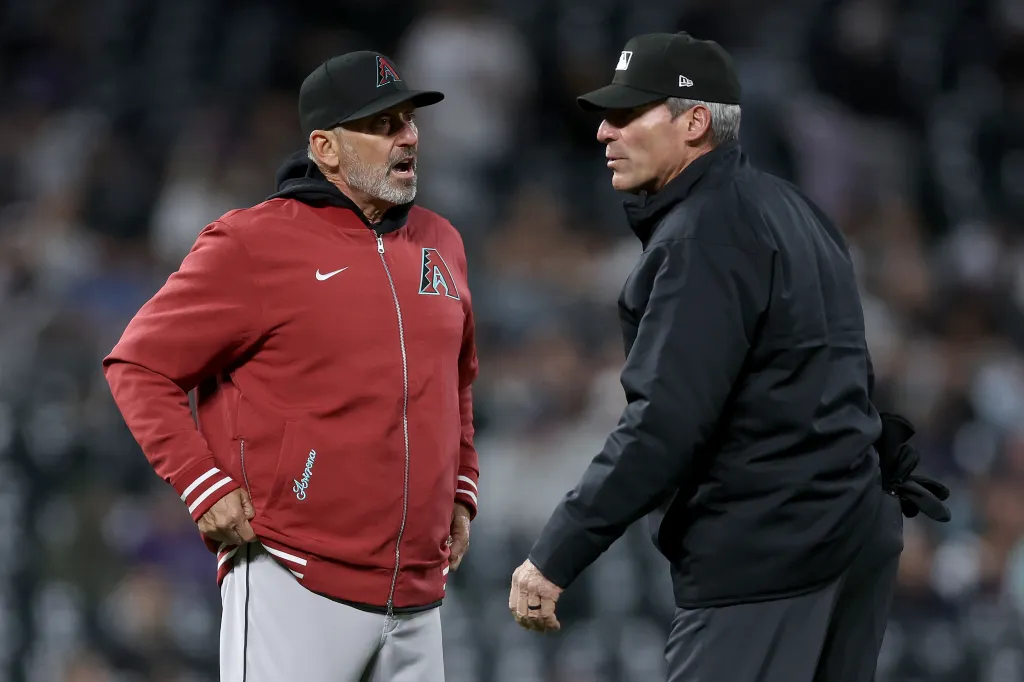
Angel Hernandez, a veteran umpire in Major League Baseball (MLB), has long been a figure of controversy and debate within the baseball community. Known for his polarizing calls and confrontational demeanor, Hernandez has once again found himself in the spotlight as scrutiny over his officiating decisions intensifies.
With a career spanning over three decades, Hernandez has officiated numerous high-profile games and postseason matchups. However, despite his experience, he has faced persistent criticism for what many perceive as inconsistent and questionable calls on the field.
One of the primary issues fueling scrutiny against Hernandez is the perceived lack of consistency in his strike zone. Pitchers and batters alike have expressed frustration over what they view as an unpredictable and at times arbitrary strike zone, which can significantly impact the outcome of games and alter the course of play.
Moreover, Hernandez’s confrontational interactions with players and managers have further exacerbated tensions on the field. Many have accused him of being unresponsive to feedback and unnecessarily escalating conflicts during games, leading to strained relationships within the baseball community.
The recent escalation of scrutiny against Hernandez came to a head during a pivotal game, where a series of disputed calls sparked outrage from players, coaches, and fans. Replays of key moments appeared to contradict Hernandez’s rulings, intensifying calls for accountability and reform within MLB’s umpiring ranks.
Critics argue that Hernandez’s performance epitomizes broader systemic issues within MLB’s officiating system. Calls for greater transparency, consistency, and professionalism have grown louder in recent years, with stakeholders advocating for reforms to uphold fairness and integrity in the game.
MLB has taken steps to address concerns about umpiring standards. The introduction of replay review for certain calls represents a significant effort to minimize errors in critical moments. Additionally, ongoing efforts to enhance training programs and performance evaluations aim to cultivate a more consistent and professional officiating corps.
However, many believe that more comprehensive reforms are necessary to address the underlying issues contributing to umpiring controversies. Suggestions for reform include implementing standardized criteria for evaluating umpire decisions, conducting regular performance reviews with input from players and managers, and leveraging advanced technology to provide objective assessments of calls on the field.
Proponents of umpiring reform argue that such measures are essential for restoring public trust in MLB officiating and preserving the integrity of the game. By holding umpires accountable for their performance and providing avenues for improvement, the league can ensure a fair and enjoyable experience for all involved.
conclusion
Angel Hernandez’s presence in the spotlight underscores the challenges and complexities inherent in MLB umpiring. While his case highlights longstanding issues within the officiating ranks, it also presents an opportunity for meaningful change. By prioritizing transparency, consistency, and professionalism in umpiring, MLB can uphold the integrity of America’s favorite pastime and ensure fair competition on the field.
FAQs
What is the role of an umpire in baseball?
Umpires are responsible for enforcing the rules of the game, making decisions on plays, and ensuring fair competition between teams.
How many umpires are there in a baseball game?
In Major League Baseball (MLB), there are typically four umpires assigned to each game: one behind home plate, one at first base, one at second base, and one at third base.
What qualifications do you need to become a baseball umpire?
Requirements vary depending on the level of play, but generally, umpires need a good understanding of the rules of baseball, strong communication skills, and the ability to make quick decisions under pressure. Training programs and certification courses are often available for aspiring umpires.
How are umpires evaluated in baseball?
Umpires are evaluated based on their performance during games, including their accuracy in making calls, consistency in enforcing the rules, and professionalism in handling interactions with players, coaches, and fans. Evaluations may be conducted by MLB officials, league supervisors, or through peer reviews.
What challenges do umpires face during games?
Umpires face various challenges during games, including the need to make split-second decisions on close plays, managing player/coach disagreements, and maintaining control over the pace and flow of the game. Additionally, factors such as weather conditions, crowd noise, and high-pressure situations can further complicate their job.
How does instant replay impact umpiring in baseball?
Instant replay allows officials to review certain calls on the field to ensure accuracy. While it provides an opportunity to correct mistakes, it also adds an additional layer of scrutiny to umpires’ decisions and can sometimes lead to delays in the game.
Are umpires subject to disciplinary action for poor performance?
Yes, umpires can face disciplinary action for repeated mistakes, unprofessional behavior, or other violations of league standards. Disciplinary measures may include fines, suspensions, or removal from assignments.
How do umpires handle disputes between players and coaches?
Umpires are trained to maintain control over the game and handle disputes in a fair and impartial manner. They may listen to arguments from both sides, but ultimately, their decisions are final and must be respected by players and coaches.


